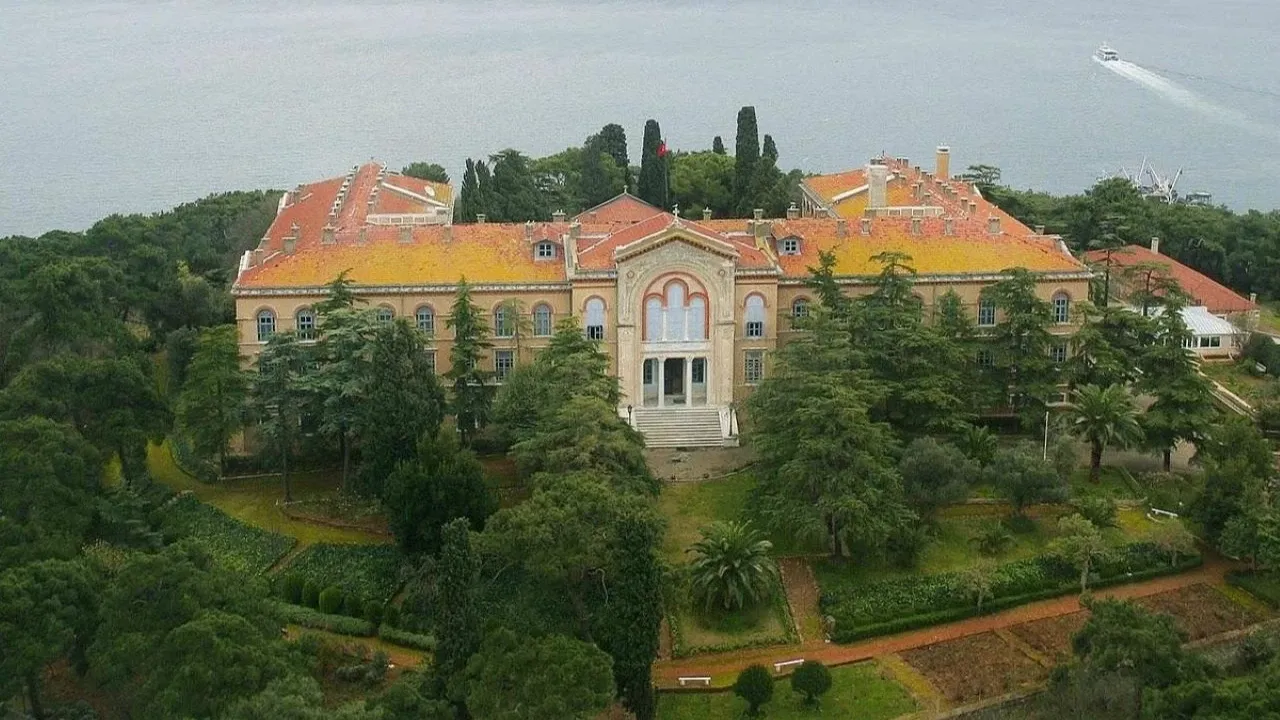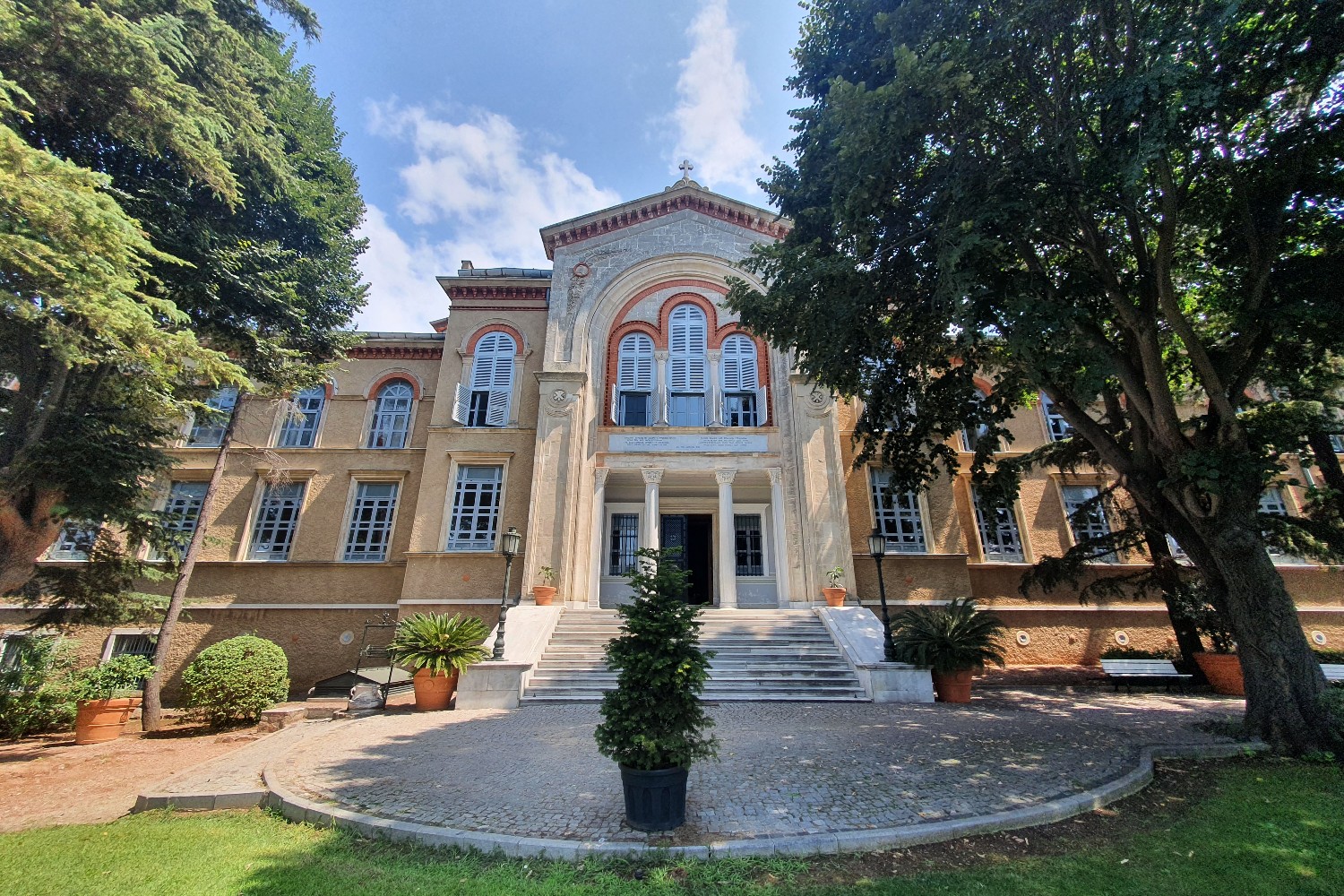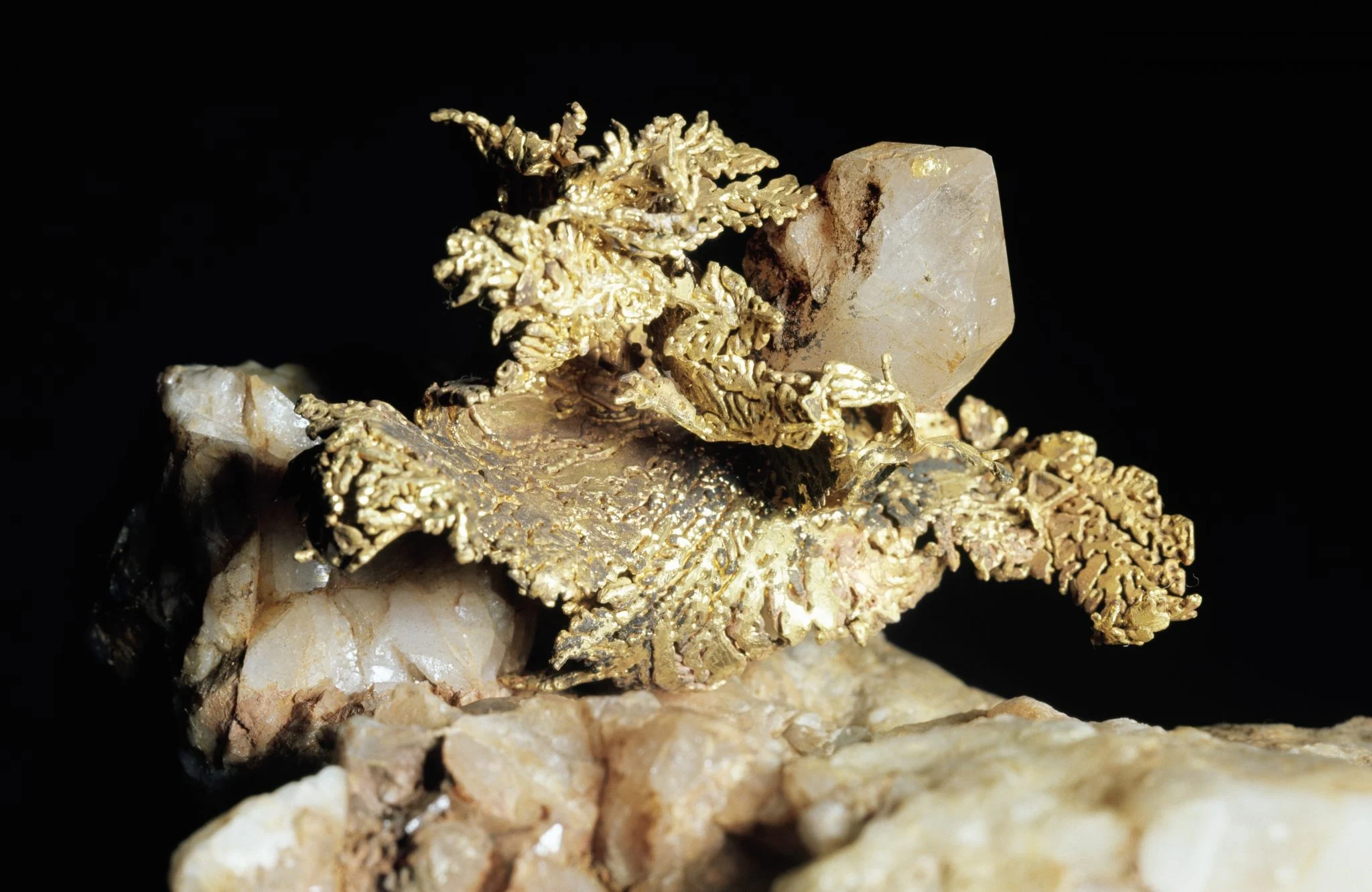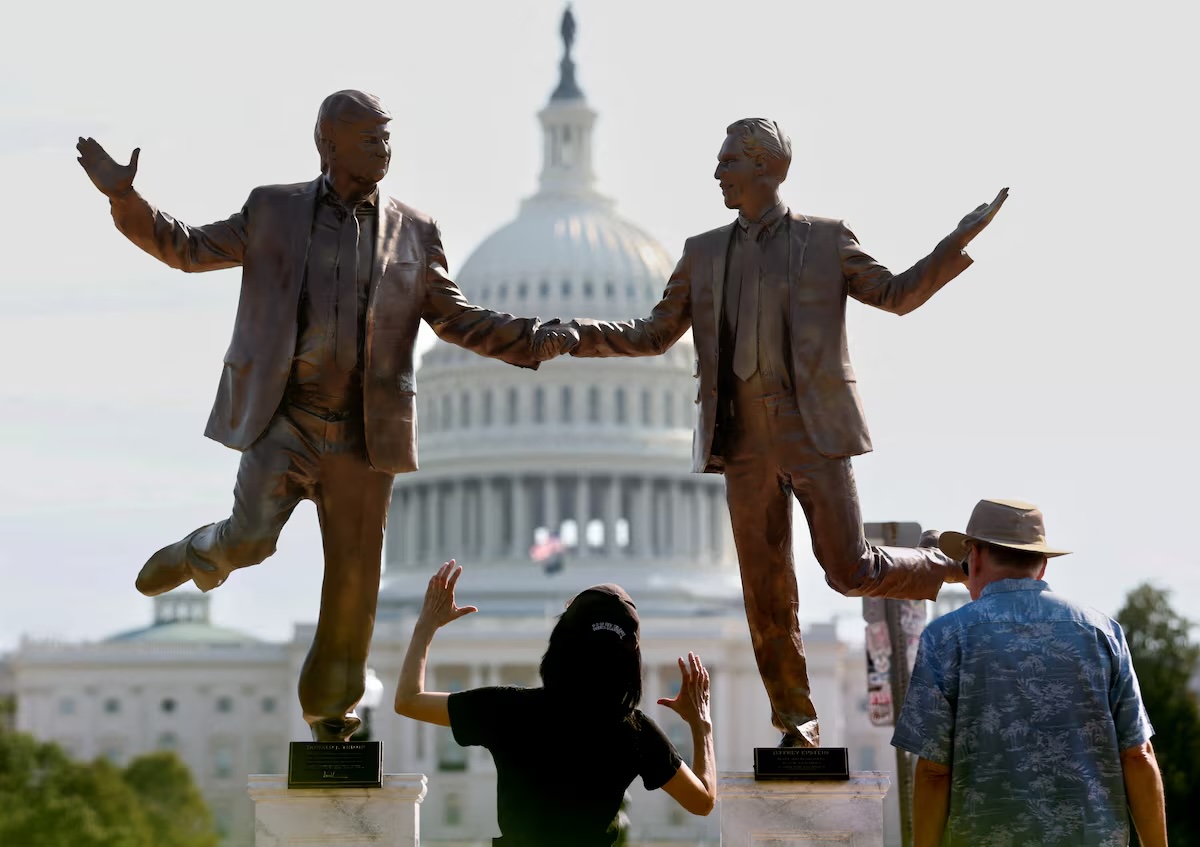From the U.S. to the European Union, from Greece to Turkey’s domestic politics, one question keeps resurfacing: will the Halki Seminary reopen? Though it has been closed for half a century, the Halki Seminary remains a central issue in Turkey’s political and diplomatic agenda.
On Ümit Hill in Heybeliada stands a grand building hidden among pine trees — silent, yet heavy with history and memory behind its closed doors for fifty years. The Halki Seminary is more than a religious school; it is a symbol for the Greek Orthodox community as well as for Turkey’s politics, law, and international relations.
President Erdoğan recently brought the issue back into the spotlight during his meeting with U.S. President Donald Trump. Erdoğan stated, “We are ready to do what is required, if there is anything to be done. I will discuss the matter with Patriarch Bartholomeos once I return to Turkey,” reviving long-standing speculation about a potential reopening.
A Brief History of the Halki Seminary
The site’s origins go back to the 9th century, when Patriarch Photios of Constantinople founded the Holy Trinity Monastery. Through Byzantine and Ottoman times, the site maintained its spiritual significance. The modern seminary was established in 1844 by Ecumenical Patriarch Germanos IV under the name “Higher Orthodox Theological School.” Its mission was to educate clergy not only for Istanbul’s Greek community but for the entire Orthodox world.
For 127 years, the seminary was the most important educational institution for the Orthodox Church. It produced 990 graduates — including 12 Ecumenical Patriarchs such as the current Patriarch Bartholomeos, as well as the heads of the Churches of Alexandria, Antioch, Athens, and Albania. Among its alumni were saints, archbishops, and metropolitans.
In the 1950s, the school opened its doors to foreign students, welcoming young men from the Balkans, the Middle East, and even the UK. Of the 225 students who graduated between 1950 and 1969, 187 were foreign nationals, giving the seminary an international academic identity.
The Seminary’s Library
One of the seminary’s most valuable assets was its library — home to over 120,000 volumes and 300 rare manuscripts, making it one of the most important collections in the world. It included works from ancient Greek philosophers to rare 16th-century prints, with texts in Greek, Arabic, Turkish, and Slavic languages. Among its treasures were 300 books not found anywhere else.
1971: Closure of the Seminary
In 1971, a new Turkish law required all private higher education institutions to be affiliated with state universities. To preserve its autonomy, the Halki Seminary refused and was forced to close. The Patriarchate appealed to the Council of State, but the case was dismissed on the grounds that the Patriarchate lacked legal personality. At the time of its closure, the school had 70 students, down from 130 in 1964. Around 60% of its graduates became clergy, while the rest pursued other careers.
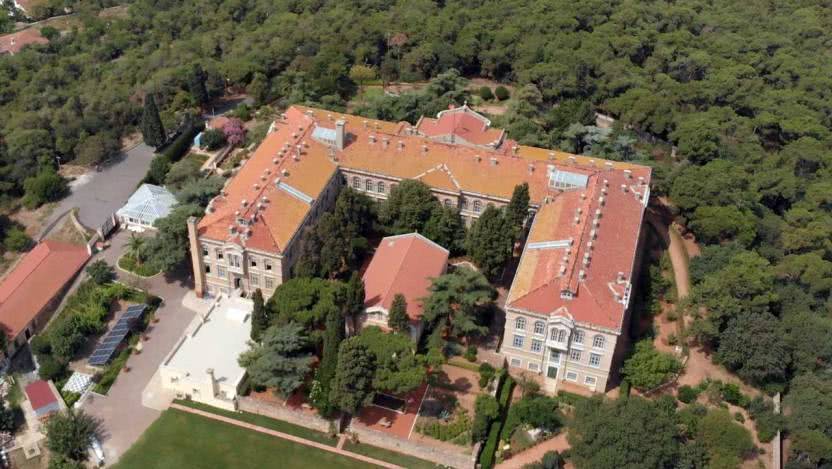
International Debate
The question of reopening the seminary has frequently surfaced in Turkey’s relations with the West. In 2012, U.S. President Barack Obama expressed happiness after meeting Erdoğan, stating he was “pleased to hear the decision to reopen the Halki Seminary.”
The European Union has consistently highlighted the issue in its progress reports, framing the reopening as a significant step for Turkey’s democracy and human rights record. In 2019, Greek Prime Minister Alexis Tsipras visited the closed seminary — the first time a Greek head of government had done so. At the end of 2024, Patriarch Bartholomeos’ meeting with Erdoğan at the Presidential Complex in Ankara brought the topic back into political discussion.
Why It’s Controversial
Opponents argue that reopening would violate the Lausanne Treaty, claiming the seminary would educate clergy for the global Orthodox world and strengthen the Patriarchate’s ecumenical status, conflicting with Turkey’s national interests. Supporters, however, argue the opposite: that Article 40 of the Lausanne Treaty guarantees minorities the right to establish their own institutions, and that the real violation was the closure of the school.
The recent discussion between Erdoğan and Trump has once again raised the possibility of ending decades of uncertainty and taking a concrete step toward reopening this historic institution.





